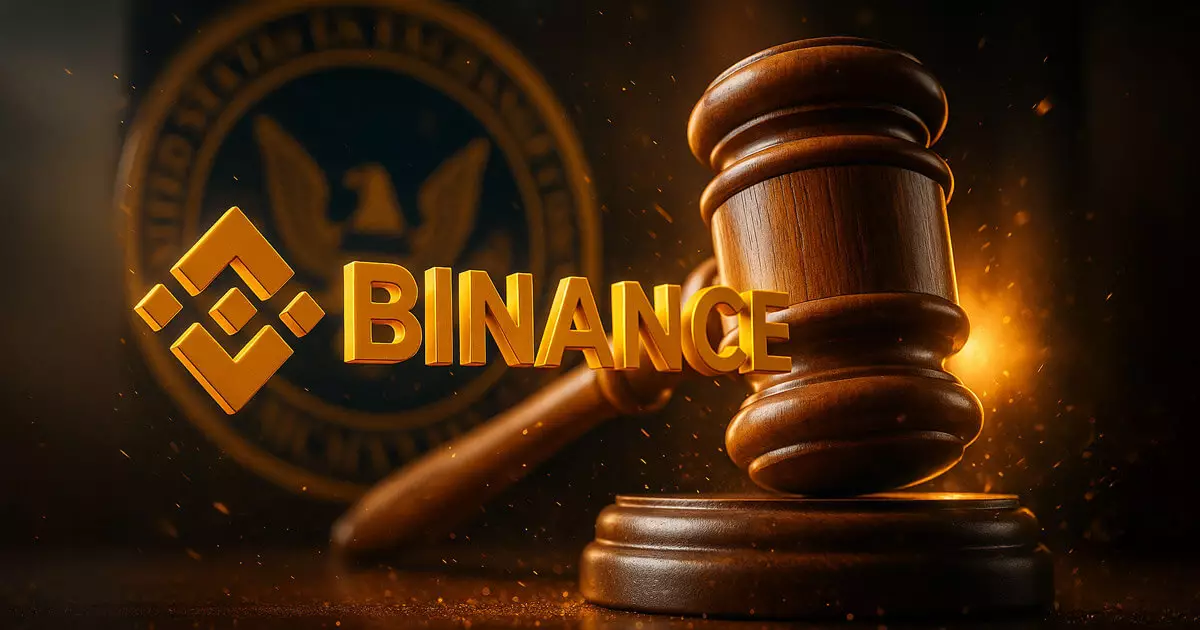In a bold move that exposes the fragility of regulatory frameworks in the rapidly evolving cryptocurrency landscape, Binance stands at a crossroads that could dramatically alter the course of compliance enforcement. The recent discussions hint at a possible rollback of the federal requirement for independent monitoring—a notorious oversight tool designed to curb illicit activities like money laundering. While some may interpret this as a necessary recalibration of regulatory overreach, the reality reveals a more strategic play aimed at favoring industry giants over the public interest.
The Trump-era shift in policy, which seems to be gathering momentum, signals an ideological tilt towards minimizing government intrusion. The Justice Department’s willingness to relax the monitorship—an authority meant to safeguard financial systems—raises critical questions about the true intent behind deregulation. Are these moves driven by a genuine belief in market self-regulation, or are they a calculated effort to placate powerful players such as Binance? Given Binance’s controversial past, including a hefty $4.3 billion settlement related to money laundering allegations, the relaxation of oversight could embolden similar entities to take greater risks, knowing that the risk of consequences may diminish.
Financial and Regulatory Toll: Who Truly Benefits?
The costs associated with compliance monitoring are often brushed aside as minor inconveniences, but they are crucial in deterring repeat offenses. Yet, under the guise of efficiency, the DOJ’s recent stance—questioning the effectiveness and expense of monitors—appears to lean heavily towards streamlining corporate operations at the expense of robust oversight. The case of Glencore Plc’s units, bearing hundreds of millions in monitoring expenses, underscores the financial burden that often accompanies attempts at regulatory discipline. If Binance succeeds in eliminating or reducing its supervision, it could free up substantial resources that might otherwise be used to fortify internal controls.
Conversely, the proposed arrangement suggests a risk-sharing model: enhanced reporting obligations could replace the monitorship, but these are often less invasive and more pliable for companies eager to slip through regulatory cracks. This subtle shift can facilitate ongoing circumvention rather than meaningful reform—especially evident in Binance’s strategic connections to politically sensitive figures and entities linked to former President Trump. The cryptocurrency giant’s denials notwithstanding, the shadowy ties raise eyebrows and fuel skepticism about whether deregulation benefits the broader economy or merely the well-connected elite.
The Future of Crypto Oversight: A Fragile Balance
The Trump administration’s apparent push to de-emphasize independent oversight aligns with a broader narrative of skepticism towards government intervention in markets. While critics argue that excessive regulation stifles innovation, the reality is that lax oversight invites exploitation, especially in a sector prone to fraud and money laundering. Binance’s case exemplifies this tension: a behemoth company capable of absorbing regulatory costs but potentially gaming the system to keep profits flowing unchecked.
Furthermore, the selective enforcement and pausing of investigations by agencies like the SEC highlight a troubling inconsistency in how crypto firms are policed. The message is clear: where political winds blow favorably, enforcement may be relaxed, and industry interests are prioritized over protecting investors and maintaining market integrity. This uneven landscape fosters an environment where compliance becomes optional rather than mandatory—endangering consumer trust and the integrity of financial systems.
As the regulatory pendulum swings, the question remains: will Binance’s possible exemptions become a blueprint for industry-wide deregulation, or does the community have the resolve to push back against policies steeped in favoritism? The path forward hinges on whether regulators will prioritize systemic security over political convenience and corporate greed.



















Leave a Reply